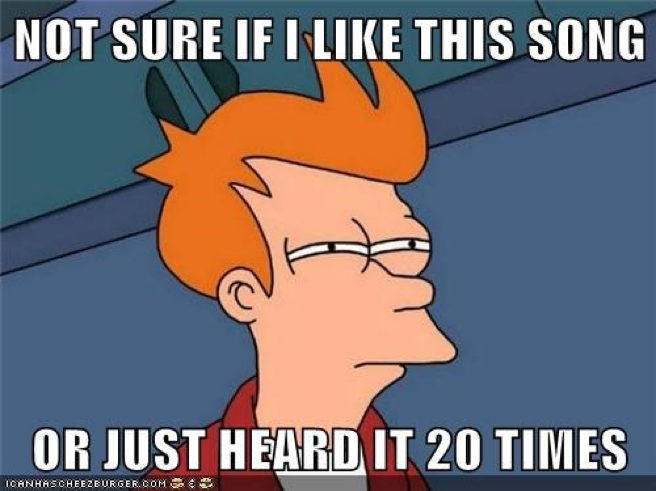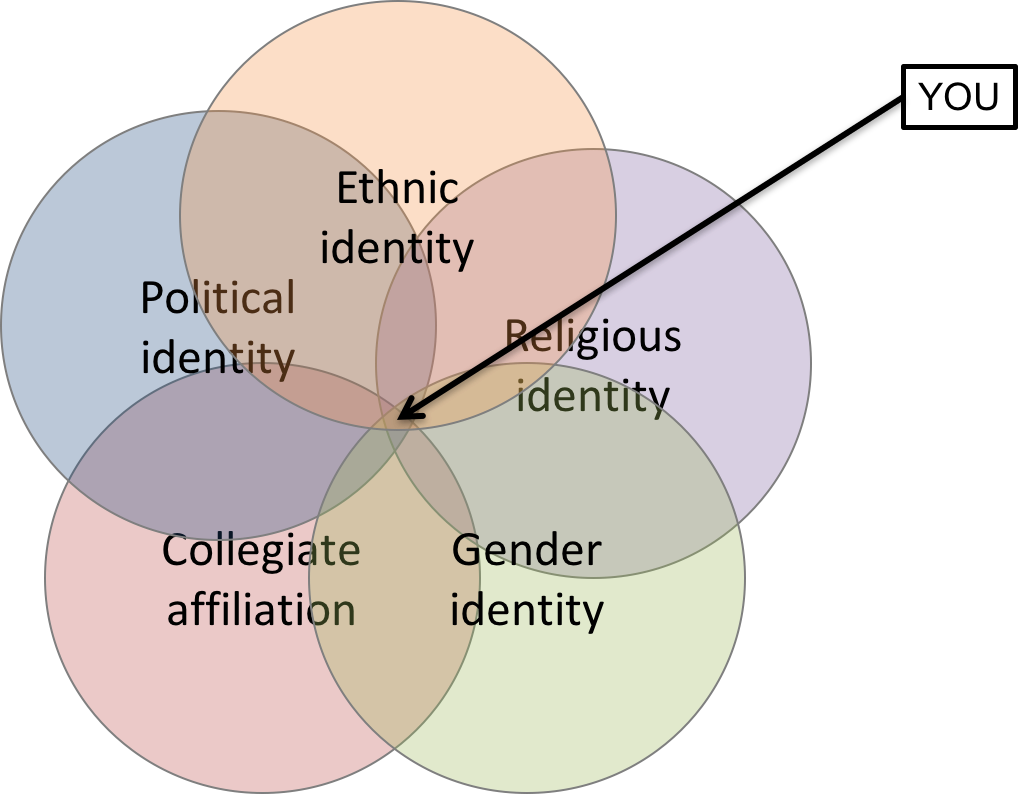Week 14 - Day 1 (Chapter 10 pt 3)
Navigate using audio
Announcements
- Bonus homework available soon
- SOIs available
Chapter 10 pt 3
Attitudes
- People’s evaluations of objects, events, or ideas
- Can be trivial (favorite soda) or grand issues (religion, politics)
- We can be aware of them or not
- They can be simple or complex
- Attitudes are shaped by social context, and they play an important role in how we evaluate and interact with other people
- People tend to develop negative attitudes about new things more quickly than they develop positive attitudes about them
- familiarity effect: The more we are exposed to something, the more we tend to like it
Attitudes can be learned
- Attitudes are acquired through classical conditioning (e.g., advertisers associate products with celebrities)
- Attitudes can also be learned through operant conditioning (e.g., rewarding a student for studying may create a positive attitude toward studying)
- Attitudes are also shaped through socialization
Would you eat a worm?
What determines if attitudes translate into behavior?
- Stronger, more personally relevant attitudes are more likely to predict behavior
- Someone who grew up in a strongly Democratic household is more likely to register as a Democrat and vote Democratic than someone who grew up in a more politically neutral environment
- Audio 0:11:39.088260
- Someone who grew up in a strongly Democratic household is more likely to register as a Democrat and vote Democratic than someone who grew up in a more politically neutral environment
- Attitude specificity: The more specific the attitude, the more predictive it is
- Attitudes formed through direct experience tend to predict behavior better
- Audio 0:13:46.153809
- Attitude accessibility: Easily activated attitudes are more stable, predictive of behavior, and resistant to change
Attitudes can function at different levels of cognitive awareness
- Explicit attitudes: attitudes that a person can report
- Implicit attitudes: attitudes that influence a person’s feelings and behavior at an unconscious level
- People higher in self-reported (explicit) prejudice were less likely to vote for Obama
- People who reported low levels of prejudice but whose scores on an implicit measure indicated negative attitudes about African Americans were also less likely to vote for Obama
- Even if you’re not aware of it, your attitudes affect your actions
- Implicit-Association Test https://implicit.harvard.edu/implicit/takeatest.html
- Audio 0:19:55.419938
What happens when attributes and behaviors don’t line up?
- Research example (Festinger & Carlsmith, 1959):
- Participants performed an extremely boring task
- Turning pegs a quarter of the way around for an hour
- Then, reported to other participants on how enjoyable it was
- Did not lie
- Paid $20
- Paid $1
- Asked to report how much they ACTUALLY liked the task
- Participants performed an extremely boring task
- Which group do you think reported liking it the most?
- The lying, highly paid group (my guess)
- Actual: Paid $1 to lie
- Told themselves they must like if they’d lie about enjoying it for a dollar
- Why??
- Discrepancy between attitudes and behavior led to an aversive emotional state (dissonance)
- Dissonance motivated people to reconcile these attitudes and behavior
- Insufficient justification led to attitude change
- Cognitive dissonance: an uncomfortable mental state due to a contradiction between two attitudes or between an attitude and a behavior
- Example: People experience cognitive dissonance when they smoke even though they know that smoking might kill them
- People reduce dissonance by changing their attitudes or behaviors They sometimes also rationalize or trivialize the discrepancies
Dissonance
- Dissonance can also arise when a person holds positive attitudes about different options but has to choose one of the options
- Postdecisional dissonance
- Motivates the person to focus on the positive aspects of the chosen option and on the negative aspects of the unchosen option(s)
- Effect occurs automatically, with minimal cognitive processing, and apparently without awareness

Spreading of Alternatives
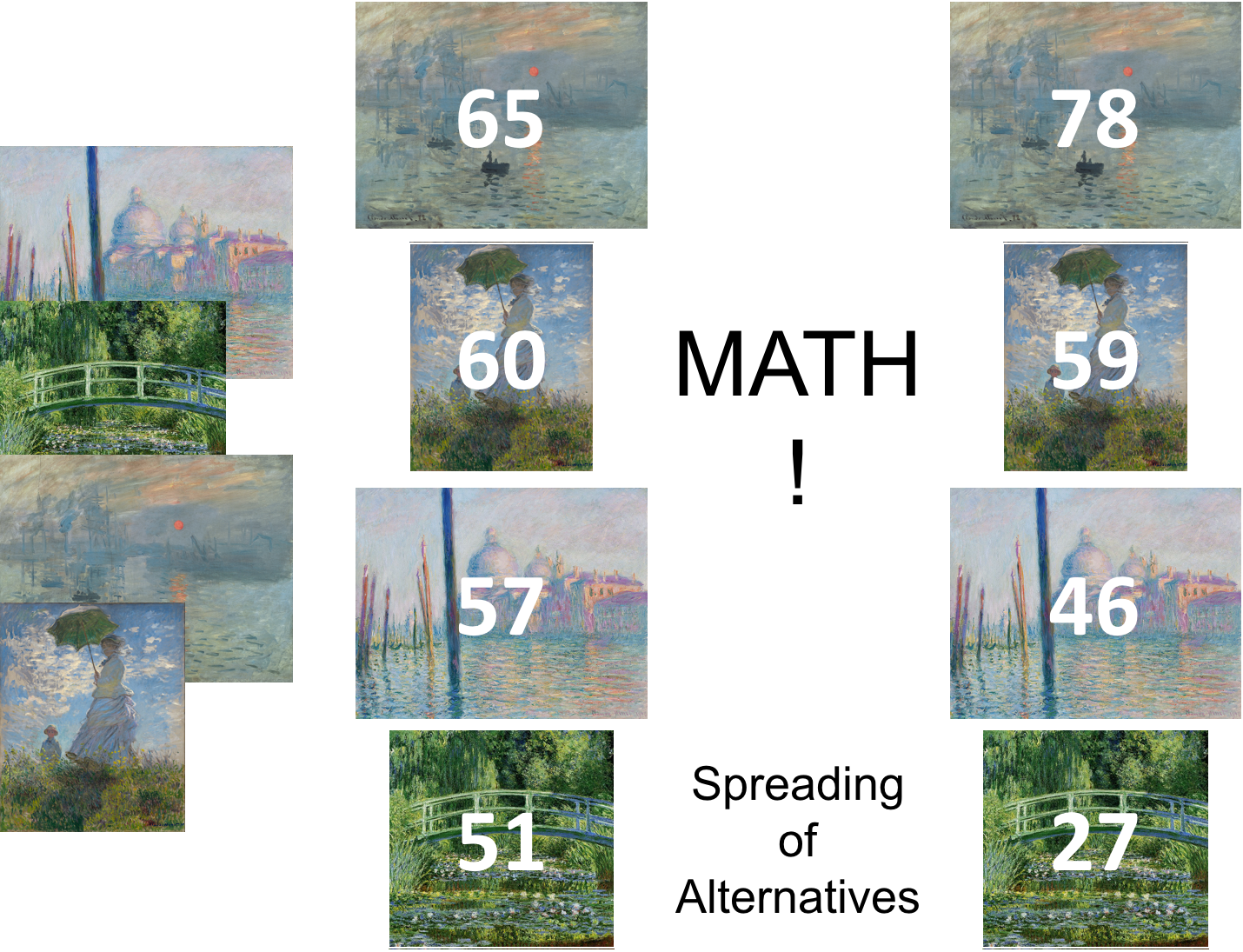
- participants defended their original choice
- Audio 0:33:38.456987
- participants defended their original choice
“Us vs. Them”
- Think of any major conflict going on in the world
- How many are related to some type of group identity, group need, or group goal?
- Evolutionarily, personal survival has depended on group survival
- Audio 0:35:47.148997
- Keeping resources within a group while denying resources to outgroup members may have provided a selective advantage
- Which picture of James Franko do you think he would like better?
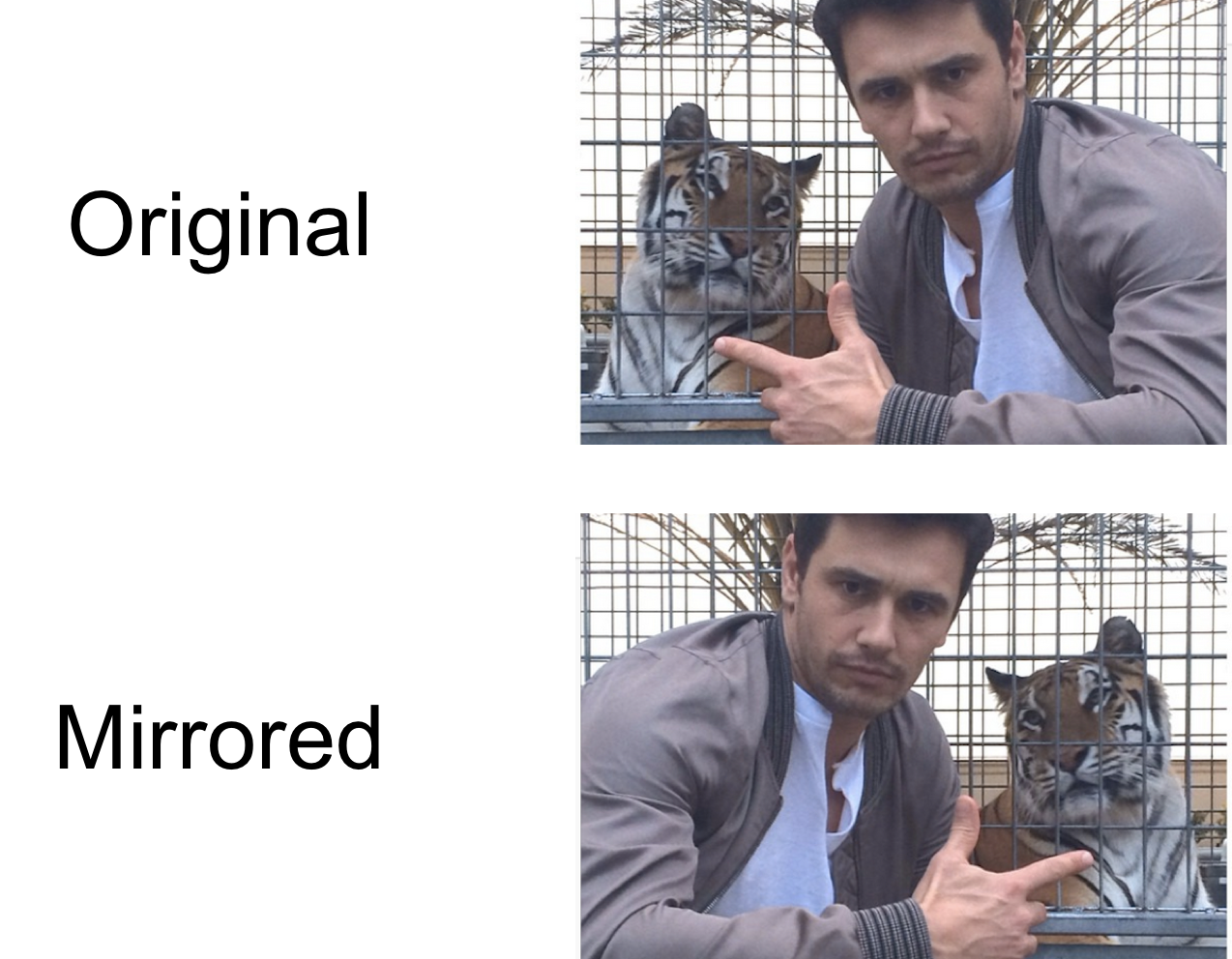
- The mirrored one because that’s the way he’s used to looking at himself
- we look at ourselves in the mirror
Types of groups
- Groups to which we belong are ingroups; those to which we do not belong are outgroups
- Social identity: the part of a person’s self concept that is based on his or her identification with a nation, religious group, political group, occupation, or other social affiliation
Us vs Them
- People have strong emotional connections to these different identities
- The more central a given identity is to a person’s sense of self, the greater emotional investment
- Ethnocentrism
- The belief that one’s own ethnic group, nation, or religion is superior to all others
- Universal phenomenon
- This belief increases commitment to group identity, influences behaviors
- Audio 0:40:01.820099
- Might motivate negative behavior
Who are we talking about?
- Audio 0:41:02.767803
- They are all the same
- They can’t contribute to society in a meaningful way
- They can’t drive well
- Weak and helpless
- Set in their ways
- Can’t understand technology
- We’re talking about old people
Stereotypes
- Summary impression of a group, in which a person believes that all members of the group share a common trait or traits
- Audio 0:42:39.825108
- Allow for easy, fast processing of social information
- Occur automatically, largely outside of our awareness
- Affect impression formation
- Universal phenomenon
- Nationality: American, British, French, Italian, etc.
- have certain pre-defined ideas about what these nationalities are like
- Ethnic group: White, Black, Hispanic, Asian American, etc.
- Age: teens vs. old people, “millenials”, “baby boomers”
- Ideological: liberal vs. conservative, religious vs. atheistic
- Role-specific stereotypes: “soccer mom”, professor
- soccer mom ex:
- has kids. drives a mini-van
- soccer mom ex:
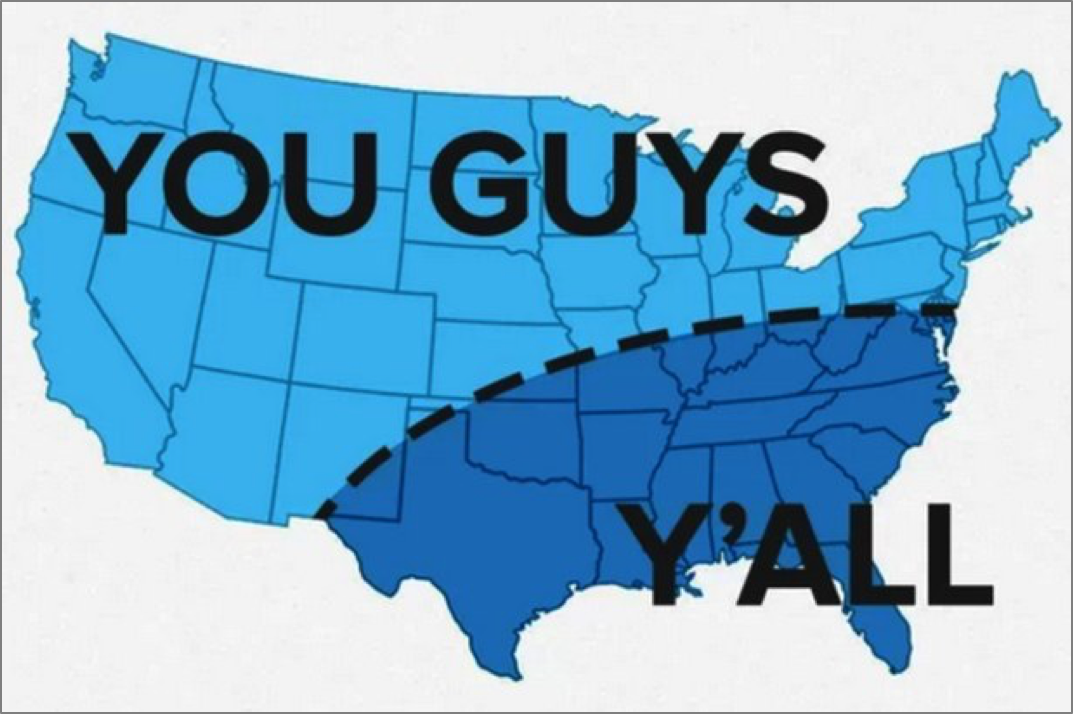
- Can be positive, negative, or neutral
- Positive: welcoming, kind, polite
- Negative: uneducated, overweight, don’t wear shoes
- Neutral: conservative, like country music, “y’all”
- Audio 0:46:18.246034
Vocab
| term | definition |
|---|---|
| attitude | People’s evaluations of objects, events, or ideas |
| familiarity effect | The more we are exposed to something, the more we tend to like it |
| attitude specificity | the more specific the attitude the more predictive it is (Ex: You know your friend likes sodas, that doesn’t help you know which soda they’re going to get, but if they only like pepsi when it’s got natural sugar and in a glass bottle, they probably won’t get pepsi often) |
| explicit attitudes | attitudes that a person can report |
| implicit attitudes | attitudes that influence a person’s feelings and behavior at an unconscious level |
| Research example (Festinger & Carlsmith, 1959) | Study where participants did a boring task. One group did not lie, one was paid $20 to lie about enjoying it, and the last was paid $1 to lie. (Showed that people told themselves they must like the task if they would lie about enjoying it for a dollar) |
| cognitive dissonance | an uncomfortable mental state due to a contradiction between two attitudes or between an attitude and a behavior (ex: smoking justification) |
| Postdecisional dissonance | Motivates the person to focus on the positive aspects of the chosen option and on the negative aspects of the unchosen option(s) |
| ingroups | groups we belong to |
| outgroups | groups we don’t belong to |
| social identity | the part of a person’s self concept that is based on his or her identification with a nation, religious group, political group, occupation, or other social affiliation |
| ethnocentrism | The belief that one’s own ethnic group, nation, or religion is superior to all others |
| stereotype | Summary impression of a group, in which a person believes that all members of the group share a common trait or traits |

